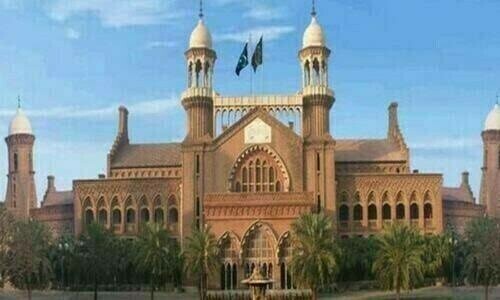
The producers of Talash couldn’t have come up with a more apt title for the movie. The movie forces one to ask hard questions about life’s mysteries — the most profound of which is guessing the nature of karmic circumstances that led Talash’s makers to believe that the footage playing at the cinema can, in fact, be deemed a motion picture.
I’m sure I can get to the bottom of the whats and whys of Talash’s origin easily enough (most of it is staring unblinkingly right at one’s face throughout the movie) — the real question, though, is: do I want to?
Naaah. Some mysteries are better left unsolved.
Talash is a near-sighted attempt to forcefully weld together two barbarities — an unrelenting NGO-backed infomercial and a genre-confused movie — into one confounding, two-hour package.
The premise sees Tania (Fariya Hassan), a young doctor in a health welfare programme called NSP (Nutrition Support Programme), coercing her superior to send a team to interior Sindh where her beau (Noman Sami), apparently, disappeared five months ago.
Talash is a near-sighted attempt to weld together two barbarities into one confounding package
I write apparently, because his phone isn’t responding, and she doesn’t know how to get in touch with him.
Rather than ask the organisation or the police to conduct a serious investigation, Tania forces her cousin Salim (Ahmed Zeb) — a colleague who also happens to be smitten by her — to go on a missing person’s search with her.
At a pit stop dhaba, she catches the fancy of a zany wadera (a local chieftain, Saleem Mairaj; a hoot) and his zanier set of guards, who chase them across the freeway into another chieftain’s territory. In no mood to trespass boundaries, the villain all but exits the story.
The mystery of the missing doctor clears up soon enough (it wasn’t really a mystery, and to be honest, no one — including the moviemakers — treated it as such). Without much of a story left to get into, the reveal gives Talash’s makers an open pass to launch a barrage of unrelenting public service messages at the audience.
Some of the arguments put up during these moments are explicitly engineered to make townsfolk look like dimwits who say and practice things that defy logic (the necessity of breast-feeding a child, for example, becomes a regularly answered question that no one asked in the first place).
But fear not, because the brave — and very carefree — doctors of the NSP are there to combat illiteracy.
Yay! ... not.
With little conflict, and even lesser resolves left in its premise, Talash’s writer-director Zeekay has little choice but to invent drama on the go to move things along. Woe, then, to the audience because every lead character is a one-dimensional twat in a soppy doctors-in-love melodrama (the same niche genre gave us ER and Grey’s Anatomy on TV).
Throughout the movie, Salim, who plays the side hero-cum-comic relief, wishes for Tania to notice his feelings for her. On the other hand, he is unapologetically hounded by another female colleague — a comic relief for a comic relief, that introduces more groans than laughs. By the end it’s unclear who he ends up with (another item to search for in Talash, I suppose).
Truth be told, Salim is in love with himself, because the poor sap can’t stop taking selfies.
Tania, on the other hand, is also in love with herself. From what we see, she is an argumentative, easily offended, high-society bimbo who wants the world to revolve round her whims.
Early in the movie, dressed in skin-tight designer jeans and a t-shirt, Tania nonchalantly ignores what country bumpkins think of her attire, screaming bloody murder at whatever she believes is injustice. Less than an hour into the movie, she and Salim crash a wedding party where she disrespectfully calls the happy attendees barbarians because they are marrying off a 16-year-old girl (she looks about that age on screen).
The bride, nor the townsfolk, see the wedding as an issue. One guest — a chieftain’s wife — tells Tania that it’s impolite for uninvited visitors to raise hell when they don’t understand (or in Tania’s case, choose not to understand), the customs of the land. Unlike Tania, the chieftain’s wife has the calm authority of a mature adult.
Ten minutes later (or was that earlier), Tania treats a pregnant woman who also tells her off for being an over-educated city bimbo who can’t digest different cultures.
In these moments, one wonders if the screenwriter actually hates Tania himself.
Unsurprisingly, Tania embodies the very gist of Talash. She is a living breathing personification of the NGO’s ideals, who is emotionally all over the place, very much like the haphazard tone of the movie.
Every other scene is riddled with forced comedy, as if the director was unwilling to stick to a particular genre — or desperately wanted the movie to be a family entertainer.
By the end credits (which includes a very long, parodic action sequence), one leaves the cinema hall in a state of stupefaction. It’s a feeling that leads one to seek out the complex questions in life —like, what compelled one to sit through a two-hour infomercial for an NGO?
Questions like this only hurt one’s head. Some questions, no matter how easy they are to answer, are better left ignored.
Published in Dawn, ICON, November 24th, 2019















































Dear visitor, the comments section is undergoing an overhaul and will return soon.